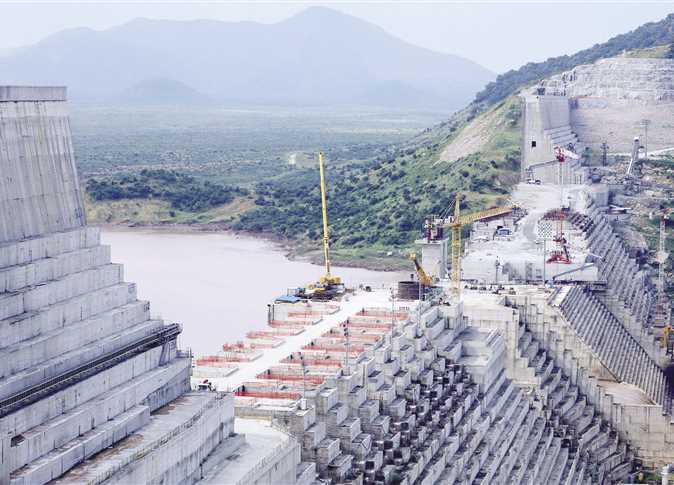
Egypt presided over the African Union (AU) for a whole year, its term having ended on February 10, and Cairo did not stop working throughout the year for the benefit of the continent. However, the AU is completely absent from the issue of the Grand Ethiopian Renaissance Dam (GERD), even though the issue is one hundred percent African, and its three parties are African!
Why?
The sole statement issued by the AU on the issue came on Friday morning, when Moussa Fakih, Chairman of the African Union Commission, called on Egypt, Sudan and Ethiopia, to reach a consensus on the dam!
It was a very strange statement in terms of location, timing, and context. It was strange in terms of location because Fakih made the statement from the Sudanese capital Khartoum, at the end of a three-day visit, and he had certainly read before (he issued the statement) about Sudan’s shocking position at the Arab League meeting.
Sudan had expressed its reservations on a draft resolution from the Arab League in support of Egypt, for its adherence to its share of the Nile waters!
The call was strange in its timing because it came immediately after Sudan’s position was made known. The statement did not differentiate between an Egyptian position adhering to the fixed historical share of Nile waters, and a Sudanese position that undermines all the constants in Khartoum’s relationship with Cairo, and then ignores the blatant intransigence on the part of Ethiopia.
Even more, Sudan has aligned with Ethiopia.
The call was strange in its context because the Chairman of the AU Commission is definitely following the details, and he knows that Ethiopia was deliberately absent from the last round of negotiations in Washington, another irresponsible position taken by Ethiopia.
How does Fakih not see all this, and then (go on to) call the three parties to reach a consensus as if all three parties have the same attitude and position?
How can he equate Egypt’s position — which has stressed from the first moment that the river should be an area of cooperation, not conflict — and the position of Ethiopia, which does not even respect the Declaration of Principles signed by the former Ethiopian Prime Minister in the Sudanese capital in March, 2015?
Nevertheless, we have the base of having worked for the benefit of the countries of the AU for the past year, and we will be able to build from there for the three following reasons:
The first of which is that we were a founding country of the Organization of African Unity in 1963. Second, even though we did leave the presidency of the AU, we currently enjoy membership in the African Peace and Security Council, by acclamation, and this strengthens our position! Finally, Egypt also enjoys membership in the AU Troika Committee, which includes the former president of the AU, the current president, and the next president!
Egypt can because it has a lot of playing cards in its hands!




